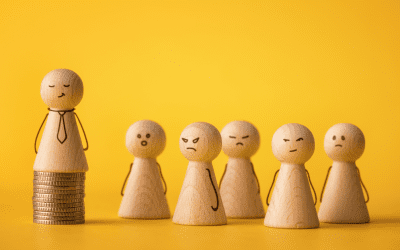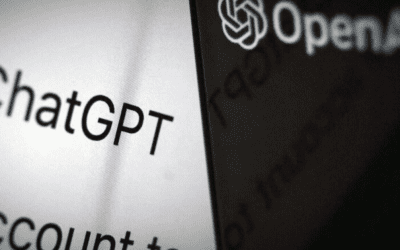With the proliferation of platforms, like Substack and Amazon, that empower individuals to publish their own work, the question is no longer whether content is going to be democratized. It has been.
Independently published (self-published) books now make up the largest share of sales on Amazon, well ahead of traditionally published books. Many news consumers now primarily get their news from Twitter and Facebook. Substack – and to a lesser extent Medium and WordPress – given rise to a new crop of independent journalists.
On top of all that, the Great Resignation has fueled a growing boom of freelance writers, online entrepreneurs, and influencers on Instagram and TikTok.
Some people are upset. There’s been handwringing from some traditional institutions who used to play the role of gatekeeper. One common complaint is that the democratization of information is creating a “post-truth” society.
As one author recently put it on Medium, “If the audience is not educated enough on fact from fiction, then they only believe these messages they are receiving in this public sphere. Therefore, we need gatekeepers to help dissect this, and bring out the truth in the news, and create an honest public sphere, which can control professional standards.”
Is the Democratization of Content Leading to a Post-Truth Society?
To be sure, there are some crazy voices out there. But it turns out that democratization has not led to any proliferation of conspiracy thinking.
According to Joseph Uscinski, coauthor of American Conspiracy Theories, the data simply do not show any overall increase in belief in conspiracy theories among the American public. While some specific conspiracies have gained traction, others have lost influence. It turns out Americans were just as conspiratorial back in the days of only 3 television channels (when traditional gatekeepers supposedly had a grip on what people believed).
The author of that Medium post asserts that an uneducated audience needs (presumably educated) gatekeepers to tell them what the truth is. This attitude is precisely why so many people are upset with traditional media and are turning instead to alternative voices.
The solution to the proliferation of content – some of it good and some of it conspiratorial – is not to treat people like children who are incapable of separating fact from fiction. It turns out, people don’t necessarily need tastemakers to make decisions for them.
It Turns out People are Pretty Good at Knowing What They Want
One salient example here is Rotten Tomatoes. It seems there’s often an inverse correlation between how much critics like a movie and how much an audience likes it. Instead of just presenting one side, Rotten Tomatoes gives people both the critics’ score and the audience score. This allows prospective movie-watchers to compare and contrast. Cinemagoers are more educated thanks to Rotten Tomatoes, not less. Rotten Tomatoes has actually made movie-watching better and more enjoyable.
We are currently in the middle of a shift – spurred by the proliferation of content – away from the clickbait Internet of 2016. It turns out, when quantity of content becomes overwhelming, quality is what stands out. Just as Rotten Tomatoes allows people to compare highbrow and lowbrow movie reviews, the democratization of content allows people to compare all kinds of information sources.
Clickbait is a race to the bottom. And audiences are reacting negatively. The future will be – at least to some extent – defined by a content meritocracy. What is good can beat out what is sensational.
Evidence for this comes in the success of new, fact-based journalism outlets like The Dispatch, which place a premium on institutional integrity and purposefully eschew fishing for clicks.
The rise of independent voices and new institutions helps hold the old institutions to account. One reason consumers have lost trust in the traditional gatekeepers is that they weren’t doing a good job policing themselves. Mainstream sources and Big-5 publishing firms still consider themselves the guardians of truth and taste. But in a world in which content is controlled by the few, who guards the guards?
How to Really Fight Misinformation in an Age of Abundant Content
Conspiracies have existed throughout history. Our new information environment isn’t “uniquely dangerous.” If anything, it’s easier than ever to debunk falsehood and obtain true information. In the 1890s, rumors spread faster than real news. Most people didn’t graduate high school, let alone college. The abundance of content on the Internet today makes it easier than ever to educate oneself.
There have always been lies and misinformation. Let’s stop pretending that having a couple of institutional gatekeepers regulating information can change that fact.
Instead of worrying about controlling what people read and watch, let’s start thinking about how to educate people to operate in an information environment that includes (gasp) lies and misinformation.
Don’t get me wrong. There is still a role for traditional gatekeeping voices. They will just have to stand alongside all the new outside voices, which means they’ll have to work harder to differentiate themselves, improving the quality of their work at the same time. And it will be easier to hold them to account (while they can hold nontraditional voices to account).
Democratization of content is a good trend because it means we can stop pretending our old solutions worked at preventing misinformation from leading to conspiracy theories. We can’t put the cat back into the bag. Instead, we can start working on what does work.
Rotten Tomatoes didn’t destroy the role of critics in judging films. It didn’t lead to genuinely terrible movies becoming massive box office blowouts, nor did it cause good movies to stop performing well. Instead, it allowed audiences to educate themselves better than they could have done pre-Internet. Which allows them to make better decisions.
The democratization of content has allowed conspiracies to proliferate. But it’s also allowed people to educate themselves, and come to their own decisions. That may not always result in smart choices in every individual case. But what ever has?



